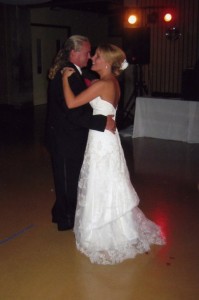#86 – Dick Bernard: Two sides of "entitlement"
Saturday, during President Obama’s time in Minneapolis, a friend of mine did a little experiment with the protestors outside.
Bruce explains it best: “At the Obama rally on Saturday, I approached several anti-reformers as a panhandler asking for a handout to help me pay my lapsing health insurance premiums, Some told me to ask the people standing in line to see Obama. Some said get on Medicaid (ironically, a government program). Some stuck their hands in their pockets and asked me how much I needed and gave me $5 and $10. I had the money in my hand and gave it back saying “I can’t take your money, you are a good person, and you put your money where your mouth is.” Many of the anti-reformers are caring and generous people who truly believe what they are against, a government incursion on their freedom and liberty. They should be taken for real, as people with substantive concerns. The problem is how we bridge this gap and ease the fear of our fellow human beings so they can help ease ours.”
There is a lot of wisdom in what Bruce has to say. At the same time, it reminded me of the simple distinction between “charity” and “justice”. The people who gave the money to Bruce knew what he looked like and could judge him worthy or not for their money (charity). (Bruce is a professional man ‘by day’ and would likely not be able to disguise his ‘responsible’ appearance and actions. He probably looked like he “deserved” help.)
On the other hand, these same benefactors would likely not want their money to go to someone whose name they don’t know, in some place far away (even the next town), because they can’t personally judge the recipient who might be given the money. He or she or might use the money, they say, for something they don’t approve. Their giving lacks justice. Justice, it seems to me, is by its very nature less judgmental.
Bruce’s comment reminds me of the frequent times when I see a handbill asking to help the family of someone whose house burned down, or one of whose members has a serious injury or disease, and no insurance to cover the costs. In such circumstances, there is often a community outpouring of compassion and concern and even money, and spaghetti dinners become an important community event to help the afflicted. But I wonder about what happens after the spaghetti dinner…people may toss a twenty in the kettle once; how about $20 a month for years till the debt is paid?
This is where “society” (a synonym is “government” in my opinion) has to come in, to spread the risk. The protestors want a very constricted view of what society is. At least that’s my opinion.
But there is another side to this as well, not quite as comfortable to contend with. And I’ll pick on someone who I’ll call “Jan” who runs in the circles that I do.
For awhile, Jan came to meetings of a group that I was part of. She had no shortage of opinions and complaints.
Our $8 dues (per year) was pretty steep, she felt, but she thought that we should send our newsletters by mail to those who didn’t have e-mail, or take them to the libraries so that people like her could read them close to home.
We tend to empathize with the Jan’s of the world, but sometimes they really challenge our understanding.
Probably the last time I saw her at a meeting, was almost a year ago, after she had done her usual litany of complaints. She told us she was buying a bus ticket – a couple of hundred dollars – to go to DC for the Presidential inauguration week activities. As I listened, it didn’t sound like she felt it to be too pricey for her budget.
I couldn’t help think of that too pricey $8 dues she’d complained about, (and never did pay).
We can look outward; but as we look outward, we need to look inward as well.
Thanks, Bruce.
UPDATE from Bruce, after he read the above:
“At first I was disappointed with the compassionate response of those who gave money to me. I wanted to see them as evil without compassion. The first responses I received were what I expected, “get in line with the Obama people”. That made more sense to me. But after getting the hand in the pocket response a few times, it dawned on me that some of the anti-reformers are serious caring people. Another side note, the women anti-reformers were the most militant and dismissive of my panhandling.”

 Jeff and daughter Megan September 12, 2009
Jeff and daughter Megan September 12, 2009